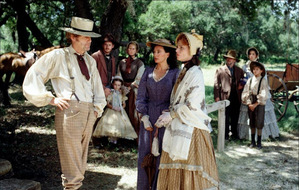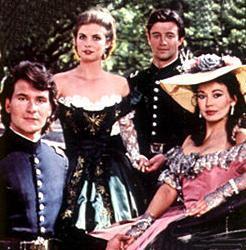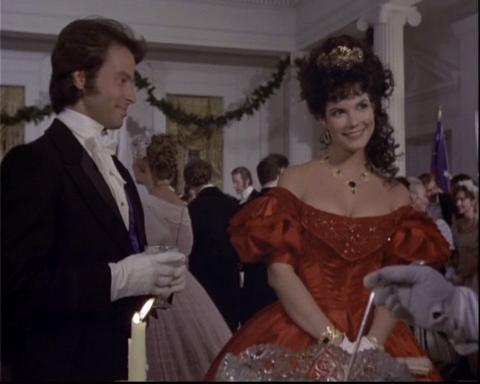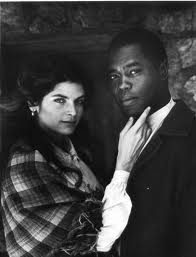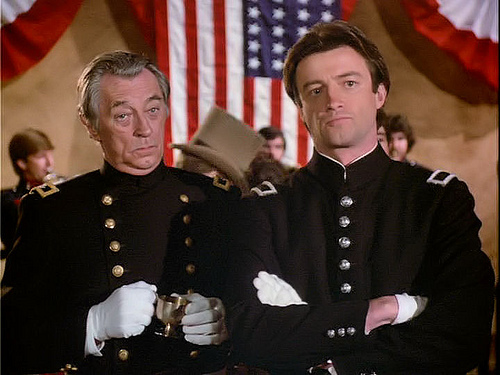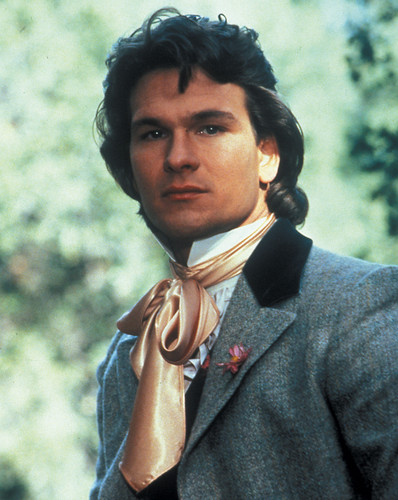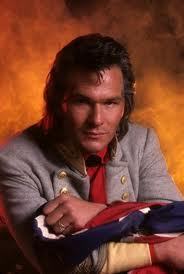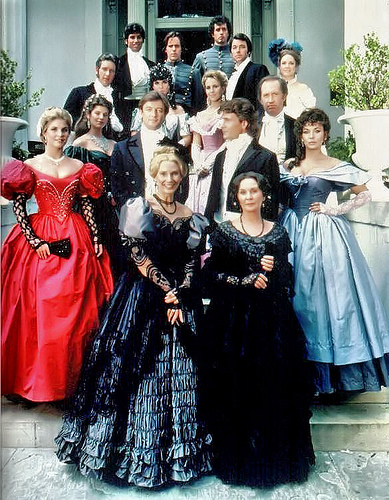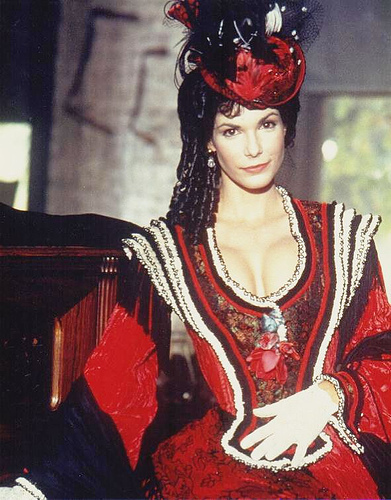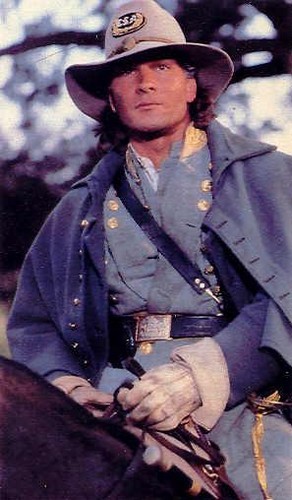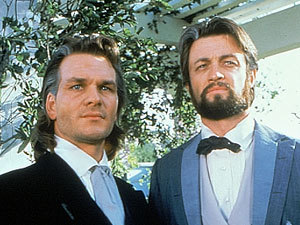"HEAVEN AND HELL: NORTH AND SOUTH BOOK III" (1994) - EPISODE ONE Commentary
If there is one chapter in John Jakes' NORTH AND SOUTH saga that is reviled by the fans, it the television adaptation of the third one, set after the American Civil War. First of all, the theme of post-war Reconstruction has never been that popular with tales about the four-year war. More importantly, fans of Jakes' saga seemed to have a low opinion of "HEAVEN AND HELL: NORTH AND SOUTH BOOK III", the 1994 adaptation of Jakes' third North and South novel, published back in 1987.
My opinion of the 1994 miniseries slightly differs from the opinions formed by the majority of the saga's fans. The three-part miniseries failed to achieve the same level of production quality that its two predecessors had enjoyed. But unlike the second miniseries, 1986's "NORTH AND SOUTH: BOOK II", this third miniseries was more faithful to Jakes' original novel - as I had pointed out in a previous article. And to my surprise, I discovered that some aspects of the miniseries were an improvement from the novel.
Episode One of "BOOK THREE" struck me as a solid return to John Jakes' saga. Not only did it re-introduce some of the old characters from the previous two miniseries, but also introduced new characters. Ironically, one of the new characters turned out to be the oldest Main sibling - Cooper Main. As many fans know, his character was left out of the first two miniseries. Why? I do not know. But Cooper was introduced as a humorless man, embittered by the South's defeat. And Robert Wagner gave one of the best performances in the miniseries in his portrayal of the deeply bitter Cooper. Another praiseworthy addition turned out to be Rya Kihlstedt, who portrayed Charles Main's new love interest, actress Willa Parker. Not only did Kihlstedt did a great job in portraying the idealistic Willa, she had great chemistry with Kyle Chandler, who took over the role of Charles Main. Many fans had howled with outrage over Chandler assuming the role of Charles, following Lewis Smith's portrayal in the previous miniseries. So did I. But after seeing Chandler do a superb job of conveying Charles' post-war angst and desperation to find a living to support his son, my outrage quickly disappeared and I became a fan of the actor. James Read gave a solid performance as a grieving George Hazard, who seemed to be having difficulty in dealing with the death of his best friend, Orry Main, at the hands of their former enemy, Elkhannah Bent. Cliff De Young made a surprisingly effective villain as Gettys LaMotte, the manipulative and vindictive leader of the local Ku Klux Klan.
Unfortunately, there were performances that failed to impress me. I got the feeling that director Larry Peerce harbored an odd idea on how a 19th century upper-class Southern woman would behave. This was quite apparent in the performances of Lesley-Anne Down as Madeline Fabray Main and Terri Garber as Ashton Main Huntoon. The performances of both actresses struck me as unusually exaggerated and melodramatic - something which they had managed to avoid in "BOOK I" and "BOOK II". Fortunately for Garber, she occasionally broke out of her caricature, when portraying Ashton's more sardonic nature. Down only got worse, when her voice acquired a breathless tone in several scenes, which director Larry Peerce seemed to associate with Southern upper-class women. Fortunately, Down ignored the Southern belle cliche in one effective scene and gave a deliciously sardonic performance in which Madeline revealed the difficulties of maintaining a ravaged plantation in the post-war South to an outraged George. Being a fan of character actor Keith Szarabajka from his stint on "ANGEL" and other television and movie appearances, I was shocked by his hammy performance as a vengeful Kentucky-born Union officer named Captain Venable, whose family had been ravaged by Confederate troops. His performance was one of the most wince-inducing I have witnessed in years.
Episode One possessed some bloopers that left me scratching my head. Cooper's sudden appearance in the miniseries was never explained by the screenwriters. Neither was the introduction of former slave Isaac, who was portrayed by Stan Shaw. And I am still curious about how Gettys LaMotte learned about Madeline's African-American ancestry, let alone the other neighbors in the parish. I do not recall Ashton or Bent telling anyone.
Fortunately, Episode One was filled with excellent scenes and moments. One of the scenes that really seemed to stand out featured George and Madeline's argument about the state of post-war Mont Royal. Charles' hilarious introduction to a Cheyenne village involved marvelous acting by Chandler and Rip Torn, who portrayed mountain man Adolphus Jackson. One other scene that had me on the floor laughing featured Ashton, who became a prostitute in Santa Fe, kicking a smelly would-be customer out of her room. The episode featured very chilly moments. One of them featured Gettys LaMotte's creepy rendition of the KKK theme song (I forgot that De Young was also a singer). Another was the murder of Adolphus Jackson and his nephew Jim by a Cheyenne warrior named Scar. But the best scene in the entire miniseries (and probably the entire trilogy) was Elkhannah Bent's murder of Constance Hazard, George's wife. I found it subtle, creepy and beautifully shot by Peerce. Also, Philip Casnoff and Wendy Kilbourne acted the hell out of that scene.
Despite some bloopers that either left me confused or wincing with discomfort - including some hammy performances by a few members of the cast - I can honestly say that "HEAVEN AND HELL: BOOK III" started off rather well. In fact, I believe it started a lot better than I had originally assumed it would.
If there is one chapter in John Jakes' NORTH AND SOUTH saga that is reviled by the fans, it the television adaptation of the third one, set after the American Civil War. First of all, the theme of post-war Reconstruction has never been that popular with tales about the four-year war. More importantly, fans of Jakes' saga seemed to have a low opinion of "HEAVEN AND HELL: NORTH AND SOUTH BOOK III", the 1994 adaptation of Jakes' third North and South novel, published back in 1987.
My opinion of the 1994 miniseries slightly differs from the opinions formed by the majority of the saga's fans. The three-part miniseries failed to achieve the same level of production quality that its two predecessors had enjoyed. But unlike the second miniseries, 1986's "NORTH AND SOUTH: BOOK II", this third miniseries was more faithful to Jakes' original novel - as I had pointed out in a previous article. And to my surprise, I discovered that some aspects of the miniseries were an improvement from the novel.
Episode One of "BOOK THREE" struck me as a solid return to John Jakes' saga. Not only did it re-introduce some of the old characters from the previous two miniseries, but also introduced new characters. Ironically, one of the new characters turned out to be the oldest Main sibling - Cooper Main. As many fans know, his character was left out of the first two miniseries. Why? I do not know. But Cooper was introduced as a humorless man, embittered by the South's defeat. And Robert Wagner gave one of the best performances in the miniseries in his portrayal of the deeply bitter Cooper. Another praiseworthy addition turned out to be Rya Kihlstedt, who portrayed Charles Main's new love interest, actress Willa Parker. Not only did Kihlstedt did a great job in portraying the idealistic Willa, she had great chemistry with Kyle Chandler, who took over the role of Charles Main. Many fans had howled with outrage over Chandler assuming the role of Charles, following Lewis Smith's portrayal in the previous miniseries. So did I. But after seeing Chandler do a superb job of conveying Charles' post-war angst and desperation to find a living to support his son, my outrage quickly disappeared and I became a fan of the actor. James Read gave a solid performance as a grieving George Hazard, who seemed to be having difficulty in dealing with the death of his best friend, Orry Main, at the hands of their former enemy, Elkhannah Bent. Cliff De Young made a surprisingly effective villain as Gettys LaMotte, the manipulative and vindictive leader of the local Ku Klux Klan.
Unfortunately, there were performances that failed to impress me. I got the feeling that director Larry Peerce harbored an odd idea on how a 19th century upper-class Southern woman would behave. This was quite apparent in the performances of Lesley-Anne Down as Madeline Fabray Main and Terri Garber as Ashton Main Huntoon. The performances of both actresses struck me as unusually exaggerated and melodramatic - something which they had managed to avoid in "BOOK I" and "BOOK II". Fortunately for Garber, she occasionally broke out of her caricature, when portraying Ashton's more sardonic nature. Down only got worse, when her voice acquired a breathless tone in several scenes, which director Larry Peerce seemed to associate with Southern upper-class women. Fortunately, Down ignored the Southern belle cliche in one effective scene and gave a deliciously sardonic performance in which Madeline revealed the difficulties of maintaining a ravaged plantation in the post-war South to an outraged George. Being a fan of character actor Keith Szarabajka from his stint on "ANGEL" and other television and movie appearances, I was shocked by his hammy performance as a vengeful Kentucky-born Union officer named Captain Venable, whose family had been ravaged by Confederate troops. His performance was one of the most wince-inducing I have witnessed in years.
Episode One possessed some bloopers that left me scratching my head. Cooper's sudden appearance in the miniseries was never explained by the screenwriters. Neither was the introduction of former slave Isaac, who was portrayed by Stan Shaw. And I am still curious about how Gettys LaMotte learned about Madeline's African-American ancestry, let alone the other neighbors in the parish. I do not recall Ashton or Bent telling anyone.
Fortunately, Episode One was filled with excellent scenes and moments. One of the scenes that really seemed to stand out featured George and Madeline's argument about the state of post-war Mont Royal. Charles' hilarious introduction to a Cheyenne village involved marvelous acting by Chandler and Rip Torn, who portrayed mountain man Adolphus Jackson. One other scene that had me on the floor laughing featured Ashton, who became a prostitute in Santa Fe, kicking a smelly would-be customer out of her room. The episode featured very chilly moments. One of them featured Gettys LaMotte's creepy rendition of the KKK theme song (I forgot that De Young was also a singer). Another was the murder of Adolphus Jackson and his nephew Jim by a Cheyenne warrior named Scar. But the best scene in the entire miniseries (and probably the entire trilogy) was Elkhannah Bent's murder of Constance Hazard, George's wife. I found it subtle, creepy and beautifully shot by Peerce. Also, Philip Casnoff and Wendy Kilbourne acted the hell out of that scene.
Despite some bloopers that either left me confused or wincing with discomfort - including some hammy performances by a few members of the cast - I can honestly say that "HEAVEN AND HELL: BOOK III" started off rather well. In fact, I believe it started a lot better than I had originally assumed it would.


